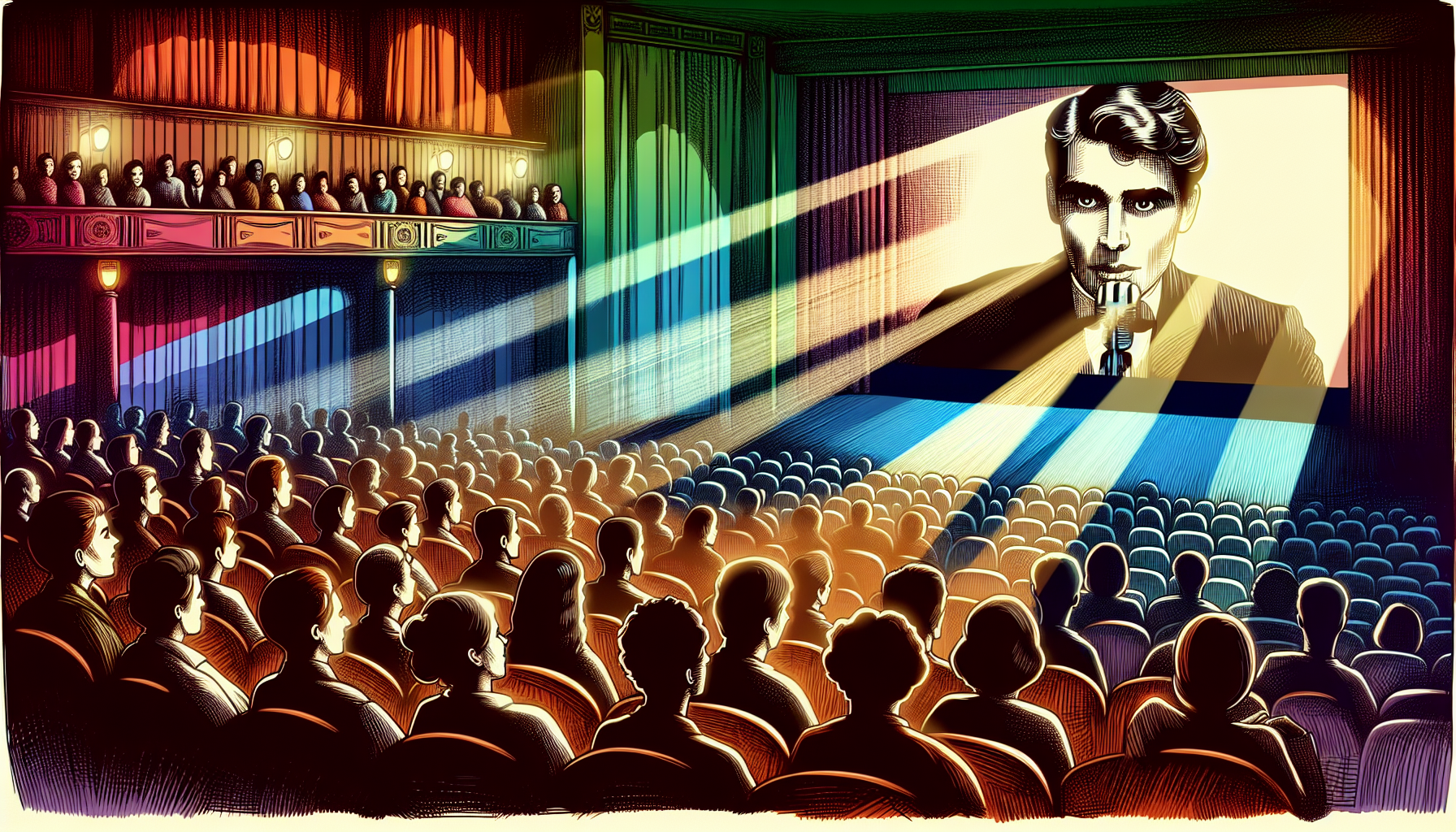
When Words Become the Show: A Tour Through Iconic Film Monologues
What do a Scottish warrior, a troubled genius, and a space-bound astronaut have in common? Aside from likely providing killer cocktail party chit-chat, they’ve all delivered some of the most spine-tingling, jaw-dropping monologues in film history. Yes, we’re diving into the delicious world of cinematic speeches that can silence a room quicker than you can say Oscar bait.
Freedom! Echoes Through Time: William Wallace in Braveheart
Imagine if your history teacher wore face paint and shouted a lot. That’s essentially Mel Gibson’s William Wallace in a nutshell. In Braveheart, there comes a moment when Gibson’s Wallace, clad in a kilt and blue face paint, delivers a speech so rousing it makes you want to run through walls. The speech before the Battle of Stirling Bridge is basically the Super Bowl pep talk of the 13th century. Wallace rides back and forth, bellowing about freedom and tyranny, and by the end, if you’re not ready to don plaid and pick up the nearest broadsword, you weren’t paying attention.
A Chess Game with Words: Vito Corleone in The Godfather
Let’s tone down the testosterone a tad and turn to a man who pulls the strings from the shadows. Marlon Brando, with a voice softer than a silk pillow stuffed with feathers, offers a masterclass in power dynamics in The Godfather. As Vito Corleone, Brando’s monologue is a gentle rumble of thunder, a quiet but deadly promise, as he discusses the ways of the world with the undertaker Bonasera. The subdued conviction of his delivery has us all leaning in closer, desperate not to miss a single syllable of the mob boss’s chilling philosophy.
When Math Has Charisma: John Nash in A Beautiful Mind
Russell Crowe transforms numbers into poetry in A Beautiful Mind with a speech that could make even the most numerophobic person fall in love with calculus. John Nash stands in Stockholm, ostensibly discussing his revolutionary approach to game theory, but really, he’s professing his love for his wife. It’s math as metaphor in the most elegantly equation-filled setting imaginable. Crowe’s Nash offers the perfect proof that love, much like a derivative, is fundamentally an understanding of change.
Space, the Final Mental Frontier: Dr. Ryan Stone in Gravity
Sandra Bullock’s Dr. Ryan Stone gives a monologue that’s truly out of this world in Gravity. Floating in the haunting vastness of space, Stone reaches out to the void, her voice crackling through the radio static. It’s a meditation on loss, perseverance, and the primal desire to survive against the indifferent expanse of the cosmos. This speech is less about the words themselves and more about the overwhelming silence of space that swallows them, reminding us all that sometimes, the most compelling dialogue is a desperate whisper against oblivion.
They May Take Our Lives, But They’ll Never Take Our Freedom! – Maximus in Gladiator
Okay, wrong movie, but if Maximus ever crashed a William Wallace rally, he’d fit right in. Back in Gladiator territory, Russell Crowe makes another entry with a pre-battle speech that would make any stoic shed a tear. As Maximus Decimus Meridius, he stirs his ragtag group of gladiators with a vision of what lies beyond death – an eternity in Elysium. The real kicker? He delivers it with the weary resignation of a man who has lost everything but found a cause worth championing.
The Everlasting Echo of Cinematic Words
Isn’t it marvelous how the resonance of a well-delivered film monologue can stick with us longer than some entire movies? Whether whispered or shouted, these speeches form the crux of cinematic legend, shaping our view of characters and the fabrics of their worlds. They seize our imaginations, daring us not merely to listen, but to feel each word. So, next time the room falls silent for a monologue, let your heart do the listening; you’ll understand why the Oscars can’t help but listen too.






